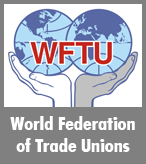Public broadcasting, democracy and human rights
The healthy operation of the mainstream media is essential to democracy and the exercise of human rights. Critical to the quality and the diversity of the country’s media is the Australian Broadcasting Corporation (ABC). An independent and comprehensive national public broadcaster that is resourced to play a prominent role in the life of the nation is integral to the maintenance of our culture. Another fundamental prerequisite for the healthy operation of the media is diversity of commercial media ownership.

Both must be protected in the expression of human rights for Australia. The viable future of neither is secure if left to the commercial market or government.
In modern times, the mainstream media has become the gateway to information, largely determining what the public does and does not know. It has a powerful influence on the attitudes and actions of citizens and governments on a wide range of important public and personal matters, and has a significant effect on our culture.
In Australia, which has one of the highest concentrations of media ownership in the world, and where direct access to and meaningful participation in the mainstream media is largely limited to a small and privileged number of people, the healthy operation of the media for the good of all citizens is even more important.
Importance of the media to Australian life and human rights
Commercial media’s raison d’être, to generate maximum profit, influences its content. The public interest is readily undermined by the opportunity that media ownership affords its owners to use their media outlets as a vehicle to influence public opinion, and therefore governments too, in pursuit of their own commercial and political interests.
Diversity of media ownership is a prerequisite for more sources of information and a greater breadth of opinion. Real competition increases the pressure on commercial media outlets to provide accurate information and to deliver a greater range of content.
Diverse media ownership goes some way to countering the anti-democratic nature of a service as essential as the media being controlled by unelected individuals or corporations, by lessening the influence that any single media owner can exert.
Australia’s public broadcasters enrich the life of our nation and its citizens in a way that commercial media cannot. Unlike the commercial media which exists to earn a profit, the public broadcasters have charters that entail them addressing their audiences as citizens, not consumers.
The ABC is a comprehensive broadcaster which informs, educates and provides quality entertainment. Funded by government and independent in spirit and at law, the ABC is able to report without fear or favour, uncompromised by commercial or political influence.
The Special Broadcasting Service (SBS) is a niche broadcaster with a responsibility to reflect and serve Australia’s multicultural society.
In a country with little media diversity left and the capacity of commercial media to deliver quality content declining, the public broadcasters are critical. Market and government cannot be relied upon to ensure healthy media.
Australia’s media ownership diversity has been allowed to shrink to the extent that we have one of the highest concentrations of mainstream media ownership in the world.
On top of the lack of commercial media diversity, another serious problem is unfolding: outside their public broadcasters, citizens are losing access to quality local content and jobs in serious journalism are disappearing.
Newspapers, a source of in-depth and investigative journalism, are disintegrating – the result of readers and advertisers migrating to new “free” online digital media, and compounded by the present world economic downturn.
It should not be assumed that, without protection, public broadcasting will continue to exist or will remain in its present form. The ABC has been attacked, and both the ABC and SBS have been seriously eroded, by governments of both major political persuasions (see page 1).
Whether it be a deliberate intention to silence and/or control the ABC, a philosophical interest to commercialise public assets, or the desire to reduce government expenditure, both Coalition and Labor governments have, at times, cut or failed to maintain the ABC’s funding, sought to interfere in its independence and to curtail its role.
In the most recent instance, the former Howard government undermined the ABC’s independence and its capacity to do its job with the use of intimidation and threats, by stacking its board of directors, and by cutting and then directing the ABC’s expenditure of funding to specific areas.
Commercial broadcasters have a vested interest in public broadcasting being shut down or curtailed, and/or its production outsourced to them. And they have the capacity to achieve this in any instance the party in government either supports them or feels it cannot risk not acting in their interest.
Public broadcasters are not in competition with commercial broadcasters. They exist to meet responsibilities specified in legislation. Nevertheless, commercial broadcasters regard public broadcasters as competitors because public broadcasters take audience share from them. In the case of SBS, it is increasingly becoming more of a competitor for advertising revenue which depends on audience share.
Increased cross-media ownership that resulted when the Howard government relaxed Australia’s cross-media ownership rules has resulted in influential media outlets, which were previously not involved in broadcasting, buying into broadcasting and now also having a vested financial interest in the demise of the ABC.
Commercial media owners with an interest in the demise of the public broadcasters also have a strong capacity to undermine them – through the operation of their own media outlets and the influence they can exert on governments.
The operation of Australia’s mainstream media affects the human rights of individuals both directly and in its influence on every important local social and political issue and on our culture. The already low number of sources of serious news and current affairs and the lack of quality local content in our media damages the wellbeing of our nation and its citizens.
If further media diversity is lost or the ABC allowed to decline as an independent and comprehensive national public broadcaster, the situation may become almost impossible to reverse.
This is an abridged version of the submission of the Friends of the ABC to the National Human Rights Consultation.













